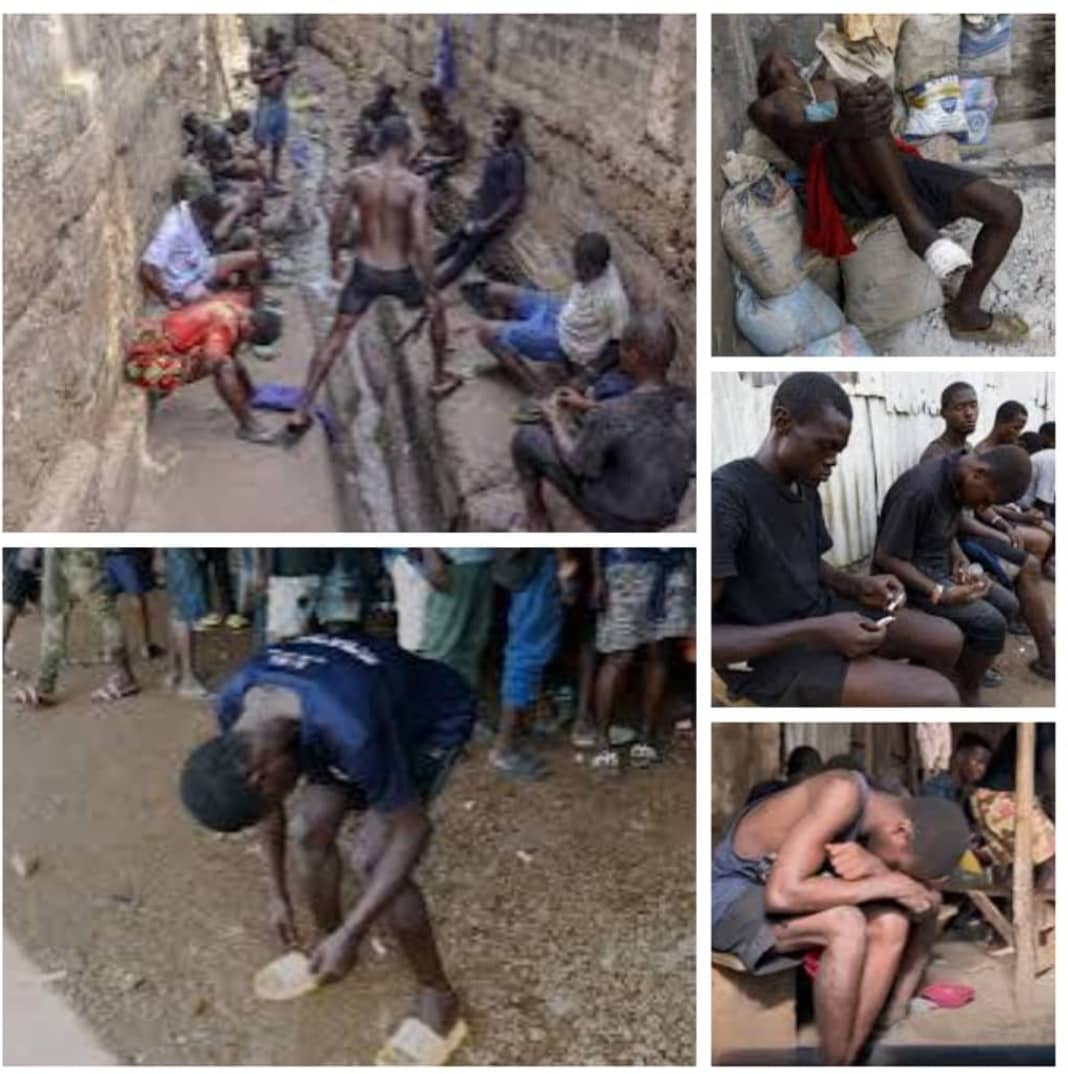Freetown, Sierra Leone – A silent war is being waged across Sierra Leone—not with guns or bombs, but with a synthetic drug known as kush. What began as an underground trend has spiraled into a national crisis, decimating the country’s youth population and threatening the social and economic fabric of the nation.
Once dismissed as a joke or a passing phase, kush has now become a deadly epidemic. From the streets of Freetown to the remote corners of the provinces, the drug has entrenched itself deeply in communities, turning vibrant young people into shadows of their former selves. Its toxic grip is evident in the hollow eyes of teenagers roaming the streets like zombies, some stripped of their sanity, others reduced to begging or engaging in crime to feed their addiction.
A Nation in Denial
Unlike the swift action taken by the government to ban substances like Coco Samba, the response to kush has been slow and alarmingly indifferent. While Coco Samba was outlawed after public outcry, kush continues to circulate freely—sold in street corners, ghettos, and even near schools—without any concrete policy framework or national emergency declared to combat it.
Despite repeated calls from civil society, parents, religious leaders, and activists, authorities remain largely silent. This has led many to question whether those in power are turning a blind eye—or worse, benefiting from the drug’s underground economy.
Lives Wasted, Futures Lost
Thousands of young men and women have fallen victim to kush. Many have dropped out of school, abandoned jobs, and severed ties with their families. Hospitals are reporting increased cases of psychosis, organ failure, and violent behavior linked to prolonged kush use. Some youths have died; others are mentally impaired beyond recovery.
The streets of urban centers like Freetown, Bo, Kenema, and Makeni are now flooded with young addicts—some barely out of their teens—sleeping in gutters, scavenging for food, and displaying extreme signs of mental health decline. In rural areas, entire farming communities are reporting a loss of youth labor due to kush addiction, undermining food production and rural development.
Security Forces Affected
Alarmingly, even members of the police and military—those tasked with upholding the law—have reportedly fallen prey to kush. Reports of security personnel abusing the drug have surfaced, further eroding public trust and raising fears that enforcement efforts may be compromised from within.
Social and Economic Impact
The long-term implications for Sierra Leone are grave. With the youth forming over 60% of the country’s population, the rapid spread of kush addiction threatens to undo decades of progress in education, workforce development, and national growth.
Unemployment is rising, crime is increasing, and public health systems are overwhelmed. Families are being torn apart, with parents left helpless as their children spiral into addiction. Schools report declining attendance and performance. Employers are struggling to find drug-free and capable young workers.
Call to Action
The continued presence and unchecked spread of kush have led many to question the seriousness of the government’s commitment to protecting the nation’s future. There are widespread allegations that some customs and border officials may be colluding in the trafficking of the drug into the country, while others accuse politicians of willful negligence.
Citizens are calling for an urgent and coordinated national response:
• A comprehensive anti-kush policy backed by legislation.
• Rehabilitation centers in every region.
• Public awareness campaigns and school-based education programs.
• Tougher enforcement at the borders and in local markets.
• Independent investigations into alleged corruption and collusion.
A Plea for Urgency
Sierra Leone stands at a crossroads. If action is not taken now, the country risks losing an entire generation to kush. This is more than a health crisis—it is a threat to national security, development, and the soul of the nation.
As one concerned citizen recently put it:
“If we continue to ignore kush, we are not only burying our youth—we are burying Sierra Leone’s future.”
The time for silence is over. The government must act—and it must act now.
By George Fallah



